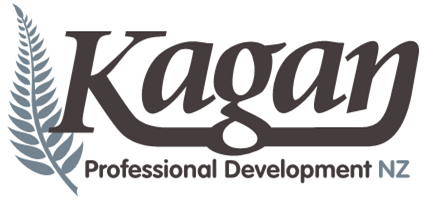
FUNDING OPTIONS
Funding Options
-
Jennie Moore is an MOE Accredited Facilitator, aligned with Blend Learning.
Writing up proposals for MOE funding isn’t always fun, but we have been successful with a number of schools so we have the expertise to support you with this.
Schools need to have a good understanding of their needs and how this PLD will meet those needs, along with linking the PLD to current MOE goals.
100 hours are sufficient for schools to have 1-3 training days, along with coaching, and teacher planning sessions. Kahui Ako may need more hours depending on the size of the group.
-
If schools are unable to access MOE funding then they do have the option of paying for the PLD from their own funds. As an ex-principal Jennie is always aware of the tight budgetary constrains schools face, so will work with you to get the biggest bang for your buck.
A one day workshop, depending on the size of the school and workshop type, ranges from $1200-$1800 for the day.
Coaching is $750 per day, which also included the after school feedback session.
Handouts, resources, texts etc and travel are not included in these prices.
Schools are expected to provide the venue and refreshments.
GST is not included.
-
Bringing together multiple schools is by far the most cost-effective way to fund workshops. The cost for the day doesn’t necessarily change that much, just the cost for the resources and texts.
Coaching is still the same per day, but we would need more days to complete a large number of teachers.
MOE funding can be sought for this PLD as well.
-
Kagan NZ periodically offers open workshops in cities around New Zealand. Prices are often dependent on venue and catering costs. Schools are able to send along individual or teams of teachers, but there is usually a relieving cost to be considered.
Schools can host these events and offset some of their own staff cost, by assisting and allowing Kagan NZ to promote the event to other schools.
Speak to us if this is an option you’d be interested in.
-
We are currently seeking schools who would like to work with us in researching the impact of Kagan. This could be a mix of longitudinal studies and short term case studies.
In order for us to have access to your data and be able to set up case study contexts, we would offer training at a greatly reduced rate.
If you have already trained, and would like to be part of a study, please contact us to discuss how this might work. Obviously this would be a win-win for all involved!
-
We have access to several corporates who could be interested in sponsoring PLD for your school. This would depend on your context and needs, and how it would fit with their brand and strategic direction.
You may also have local companies who will look at contributing to PLD for your school. We would be happy to accompany you to talk to them about this as an option.

“The power of Kagan lies not only in what it can do for schools, but what it can do for their communities.”
Jennie Moore
Why do we need Kagan?
We are facing four interrelated crises in education…
-
Academic performance in New Zealand is failing compared to other leading nations. Hundreds of research studies demonstrate cooperative learning increases achievement at all levels and in all academic areas.
-
Academic outcomes are inequitable for different races and socioeconomic classes. Cooperative learning promotes academic gains, especially for priority and low achieving learners, lowering the achievement gap and increasing educational equity.
-
Students increasingly lack essential character virtues, and social and communication skills. Cooperative learning improves the development of personal and social skills, largely missing in society, yet desperately sought in the current workplace.
-
More and more teachers don’t have the necessary skills to deliver everything that is required of them in schools of today: managing extreme student behaviour; ensuring student well-being; inclusion; teaching basic literacy and maths skills; using Culturally Responsive pedagogy; and so on…
Kagan provides teachers with a pedagogical platform to effectively deliver the NZC, build a safe and positive classroom culture, develop social skills, promote positive behaviour management, and incorporates many aspects of CRP.
Each of these crisis can be addressed by frequent use of Kagan’s multi-faceted approach to cooperative learning.
-

Students in an intermediate maths class engaged in RallyCoach, one of our pairs structures for procedural learning. Students learn to take turns, ask for help, listen to advice, and coach and praise others. RallyCoach lights up several parts of the brain all at once! They are on fire!
-
New Entrants learning phonics using Quiz Quiz Trade, one of our classbuilding and knowledge building structures. Students learn to work with anyone, offer help, coach and praise others, while getting oxygen and glucose flowing to the brain through movement. Way better than tilty seats!
-

Year 2 students telling their ‘news’ in small teams using RoundRobin. They learn to take turns, listen to others, and paraphrase, and the engagement level is far higher than one student speaking to 20 other students all waiting for their turn. Why engage one or two, when you can engage them all?
-

High school students finding out about their team members using one of our Teambuilding structures, Team Interview. Students gain confidence in speaking to their team as well and students learn to listen, show respect and empathy, and praise and respond to others. Effective teamwork doesn’t happen by accident!

